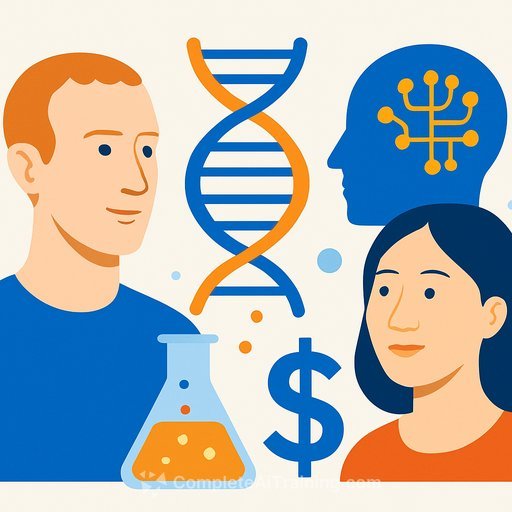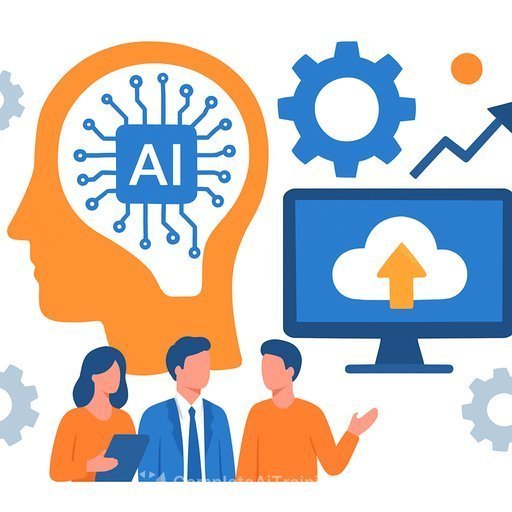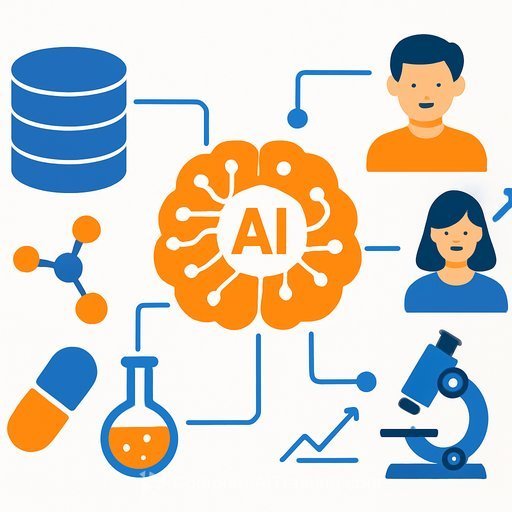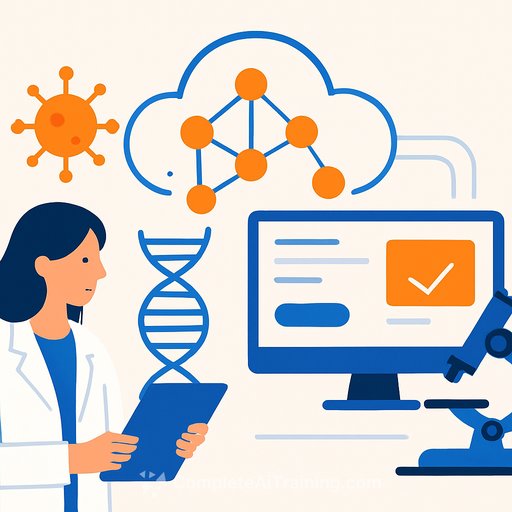AI Takes Center Stage as Chan and Zuckerberg Shift Philanthropy to Biohub
- Philanthropy pivots to Biohub with a singular focus: use AI to accelerate discovery and manage disease.
- Funding: doubling prior $4B investment over the next decade; ~$1B annual operating budget; 99% lifetime wealth pledged.
- Talent and scale: Biohub brings in EvolutionaryScale's team and targets 10,000 GPUs by 2028 for large-scale virtual experiments.
- Scientific agenda: open-source virtual cell systems and AI models to study immunity, inflammation, and disease mechanisms.
For nearly a decade, Dr. Priscilla Chan and Mark Zuckerberg funded education, housing, and community initiatives. Now, most of that capital and attention is shifting to Biohub, their science organization. The stated aim: use AI to speed up discovery and move medicine from trial-and-error to precise modeling of human biology.
The announcement, made November 6, 2025 in Redwood City, signals a new center of gravity for their philanthropy. "I feel like the science work that we've done, the Biohub model in particular, has been the most impactful thing that we have done," Zuckerberg said at the event. The plan is to double prior spending on Biohub over the next decade and operate with an annual budget near $1B.
The couple has pledged 99% of their lifetime wealth-primarily Meta shares-to this mission, a sum that could exceed $200B. The bet is that long-horizon science and tool development can drive durable gains that outlast policy cycles. That means fewer small programs, more focus on platforms, data, and models that labs worldwide can use.
Why AI sits at the core
Biohub's thesis: virtual, AI-based cell models can let researchers test hypotheses in silico before moving to the bench. Dr. Chan framed the motivation through the clinic: seeing inside cells, linking genotype to phenotype, and pinpointing what breaks down across cell types. "For the first time, we have the potential to model and predict the biology of disease in ways that can reveal what's gone wrong and how we can develop new treatments to address it."
The near-term emphasis includes inflammation biology and immune system control for early detection, prevention, and treatment. Virtual cells would provide digital representations at molecular, cellular, and genomic levels. The models are planned to be open-source so the field can test, critique, and extend them.
Talent, compute, and throughput
Biohub hired the team at EvolutionaryScale, an AI lab known for large-scale life science models. Co-founder Alex Rives will serve as head of science, steering experimental biology, data, and AI. Financial terms weren't disclosed, but the move signals an ambition to sit at the center of AI-driven biomedicine.
Compute is a priority. Biohub targets 10,000 GPUs by 2028 to run virtual experiments at scales labs typically can't touch. As the organization put it, "we believe it might eventually become possible to achieve decades of discoveries in months… to unlock frontier medicine."
The scientific agenda
- Program and direct the immune system for earlier detection and intervention.
- Develop virtual cell systems that mirror human physiology across omics layers.
- Release models and tools openly to allow broad use, benchmarking, and iteration.
- Build data and experimental pipelines that couple wet lab readouts with model training.
For researchers, the interesting part is how these models will be validated and where they generalize. Expect benchmarks tied to specific disease mechanisms, with wet lab feedback loops. Also expect significant efforts in data standardization and curation-otherwise the models will plateau.
What this means for labs and institutes
- Watch for open model releases and APIs from Biohub and collaborators for virtual screening, cell-state prediction, and sequence design.
- Prepare data pipelines that align with common schemas to plug into larger pretraining efforts.
- Skill up on multimodal model training and evaluation; expertise in experimental design for model validation will be in demand.
- If compute is a constraint, prioritize careful benchmarking and hybrid workflows that pair local experiments with cloud or shared resources.
Shift away from earlier social programs
The move comes with trade-offs. CZI has scaled back or ended many education and community initiatives in recent years, including parts of its education portfolio and some diversity-focused efforts. Some grants will continue, but on a smaller scale, with Biohub as the primary focus going forward.
Not everyone agrees with the concentration of resources. As one critic put it at a recent event, "If you're a billionaire, why are you a billionaire?... give your money away." The couple argues that long-cycle science and platform tools deliver stronger returns for patients and the broader research community.
What to watch next
- First reference virtual cell models and their performance on disease-relevant benchmarks.
- Details on data partnerships, governance, and how labs can contribute or access compute.
- Clinical tie-ins: prospective studies connecting model predictions to patient outcomes.
- Safety, misuse mitigation, and publication standards for generative bio models.
Success will be measured on patient impact, not just citations. As Dr. Chan put it: curing disease in model organisms is useful, but the goal is progress for people. If virtual experimentation compresses cycle times and improves hit rates, the field's operating system changes.
Learn more from CZ Biohub and external reporting such as the BBC.
If you're upskilling for AI-heavy research workflows, browse focused programs by role at Complete AI Training.
Your membership also unlocks:






